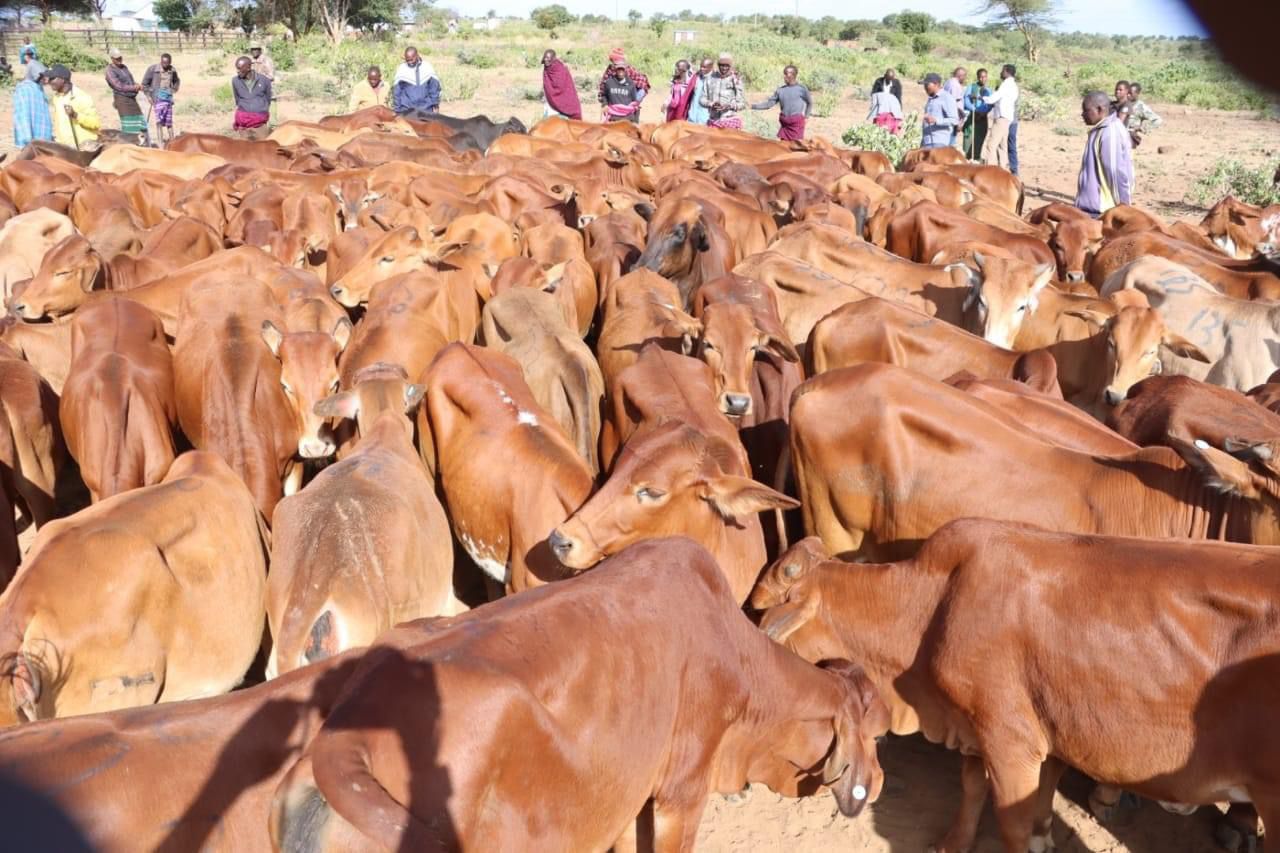COVID-19 pandemic caused drop in global life expectancy erasing decade of progress - report

By Lucy Mumbi |
The average global life expectancy dropped by 1.8 years to 71.4 years, a level last seen in 2012. Similarly, healthy life expectancy fell by 1.5 years to 61.9 years, also reverting to 2012 figures.
The latest World Health Organisation (WHO) report, titled World Health Statistics 2024: Monitoring Health for the SDGs (Sustainable Development Goals), has revealed that the COVID-19 pandemic reversed nearly a decade of progress in global health.
Before the pandemic, both life expectancy and healthy life expectancy were steadily improving worldwide. However, from 2019 to 2021, these gains were significantly reversed.
Keep reading
The average global life expectancy dropped by 1.8 years to 71.4 years, a level last seen in 2012. Similarly, healthy life expectancy fell by 1.5 years to 61.9 years, also reverting to 2012 figures.
This means that the progress made over almost ten years in increasing how long and how healthily people live was undone by the pandemic in just two years.
Effects of the pandemic across different continents
The report also shows that the impact of the pandemic was not the same everywhere.
It reveals that the Americas and Southeast Asia were hit hardest, with life expectancy dropping by about three years and healthy life expectancy by 2.5 years between 2019 and 2021.
In contrast, the Western Pacific Region was much less affected, with life expectancy dropping by less than 0.1 years and healthy life expectancy by 0.2 years.
The report notes that COVID-19 quickly became a leading cause of death, ranking as the third highest cause of death globally in 2020 and the second in 2021.
It estimates that nearly 13 million lives were lost during this period, with COVID-19 ranking among the top five causes of death in most regions and the leading cause of death in America for both years.
“Nearly 13 million lives were lost during this period. The latest estimates reveal that except in the African and Western Pacific regions, COVID-19 was among the top five causes of death, notably becoming the leading cause of death in America for both years,” reads the report.
Additionally, before the pandemic, non-communicable diseases (NCDs) like heart disease, stroke, cancer, chronic lung diseases, Alzheimer's disease, and diabetes were the biggest killers, responsible for 74 per cent of all deaths in 2019.
However, even during the pandemic, NCDs continued to account for 78 per cent of non-COVID deaths.
The report also warns of a double burden of malnutrition, with both undernutrition and obesity affecting global populations.
In 2022, over one billion people aged five years and older were living with obesity, while more than half a billion were underweight. Children were particularly affected, with 148 million under five years old suffering from stunting, 45 million from wasting, and 37 million from being overweight.
People with disabilities, refugees, and migrants were also hard hit during the pandemic. In 2021, about 1.3 billion people, or 16 per cent of the global population, had disabilities and faced health inequities.
The report notes that access to healthcare for refugees and migrants remained limited, with only half of the 84 countries surveyed between 2018 and 2021 providing government-funded health services to these groups at the same level as their citizens.
“This highlights the urgent need for health systems to adapt and address the persisting inequities and changing demographic needs of global populations,” reads the report.
Progress made so far
However, despite the setbacks caused by the pandemic, the report acknowledges that some progress has been made towards achieving the Triple Billion targets and health-related indicators of the Sustainable Development Goals (SDGs).
Since 2018, an additional 1.5 billion people have achieved better health and well-being. Universal Health Coverage expanded to 585 million more people, though it still falls short of the one billion target.
Additionally, by 2025, only 777 million more people will likely be adequately protected during health emergencies, missing the one billion target set in the WHO's 13th General Programme of Work.
“This protection is increasingly important as the effects of climate change and other global crises increasingly threaten health security,” the report notes.
WHO Director-General Dr. Tedros Adhanom Ghebreyesus says while there has been major progress in global health, the pandemic showed how quickly pall efforts can be eroded.
The Pandemic Agreement
He emphasised the importance of the new Pandemic Agreement to strengthen global health security, protect long-term health investments, and promote fairness within and between countries.
WHO's Member States decided to extend the mandate of the Intergovernmental Negotiating Body, established in December 2021, to finish its work to negotiate a Pandemic Agreement within a year, by the World Health Assembly in 2025, or earlier if possible, at a special session of the Health Assembly in 2024.
“There continues to be major progress in global health, with billions of people enjoying better health, better access to services, and better protection from health emergencies. But we must remember how fragile progress can be. In just two years, the COVID-19 pandemic erased a decade of gains in life expectancy. That's why the new Pandemic Agreement is so important: not only to strengthen global health security but to protect long-term investments in health and promote equity within and between countries,” he said.
WHO Assistant Director-General for Data, Analytics, and Delivery for Impact Dr. Samira Asma echoed this sentiment, warning that without accelerated progress, it is unlikely that any health SDGs will be met by 2030.
“While we have made progress towards the Triple Billion targets since 2018, a lot still needs to be done. Data is WHO’s superpower. We need to use it better to deliver more impact in countries,” she said.
Reader comments
Follow Us and Stay Connected!
We'd love for you to join our community and stay updated with our latest stories and updates. Follow us on our social media channels and be part of the conversation!
Let's stay connected and keep the dialogue going!
















